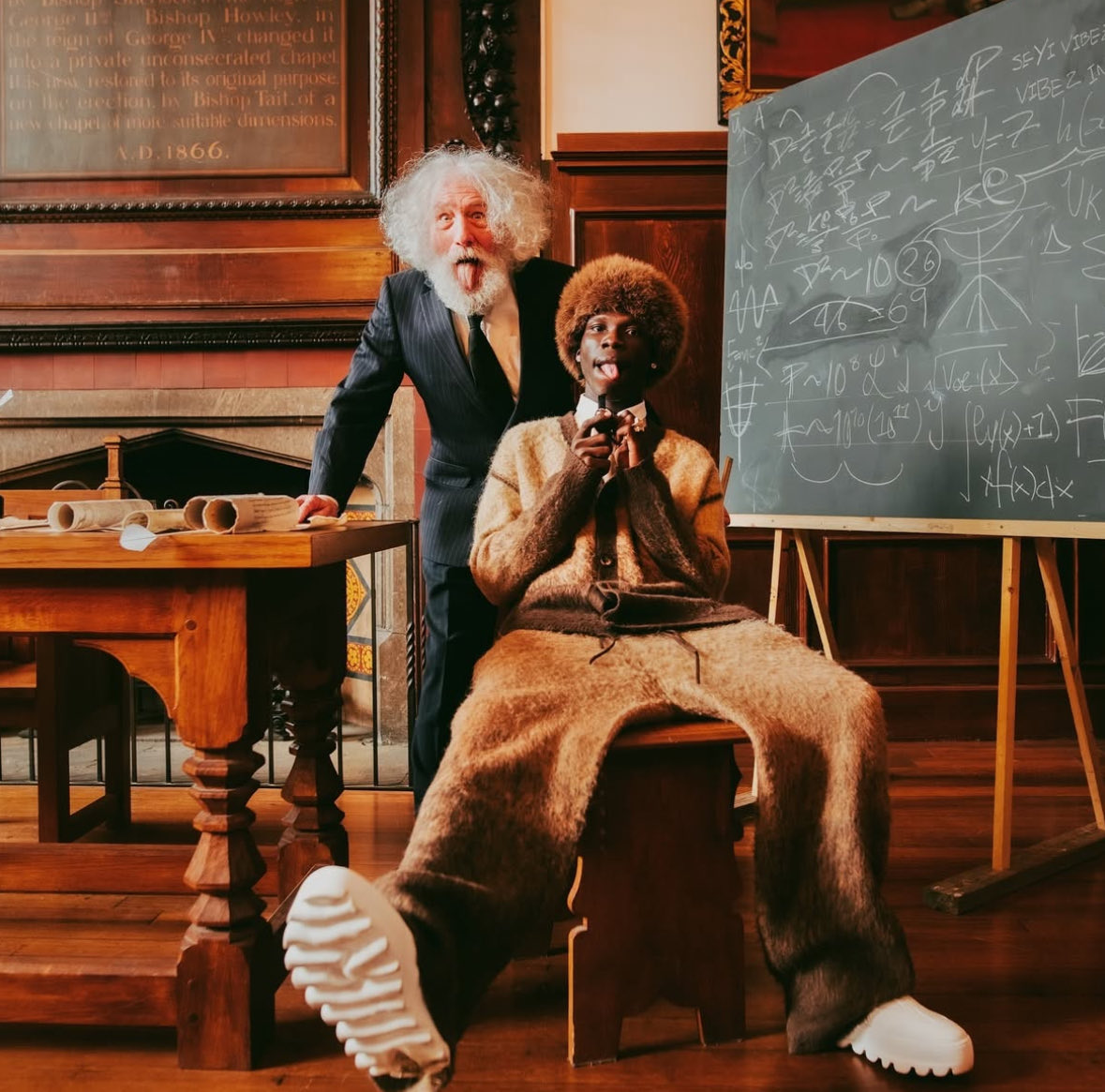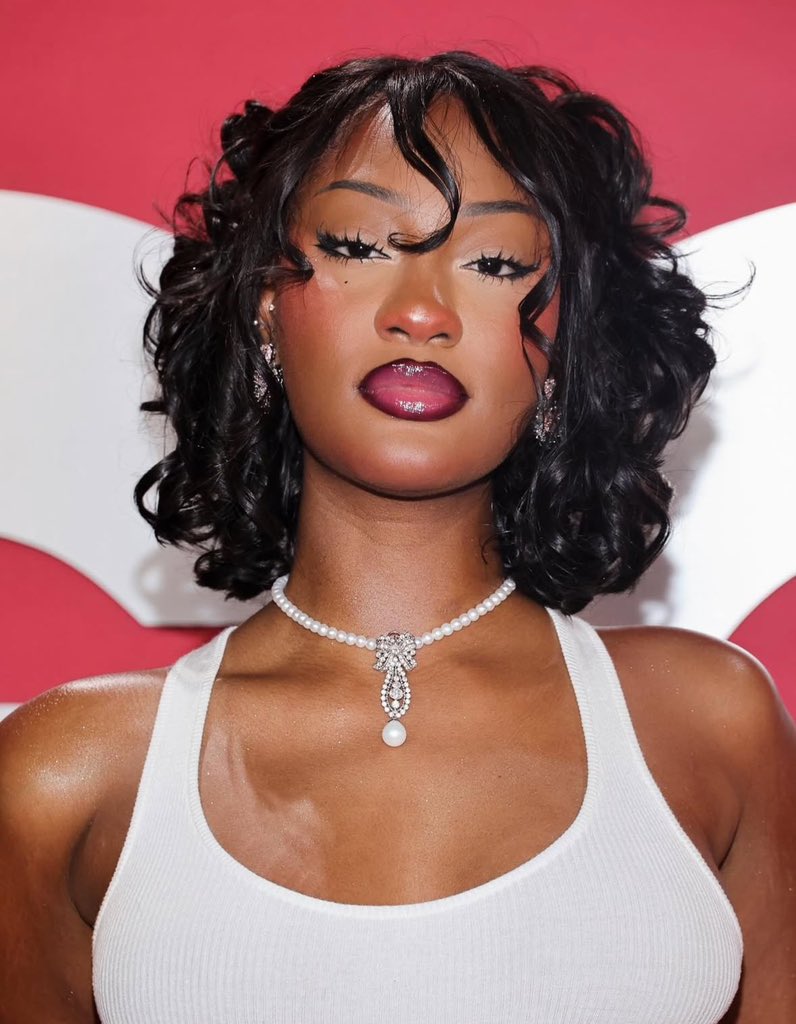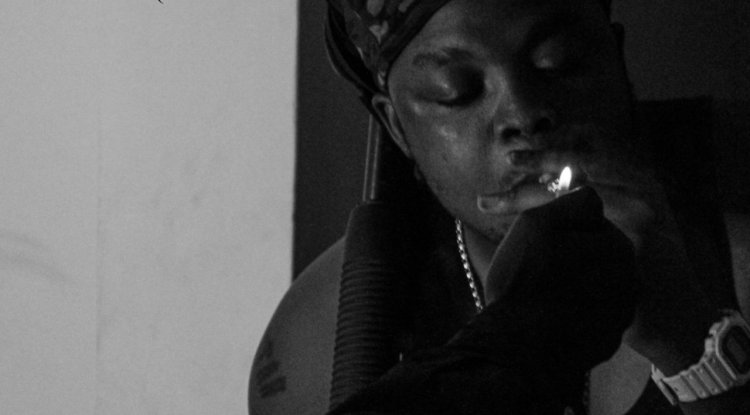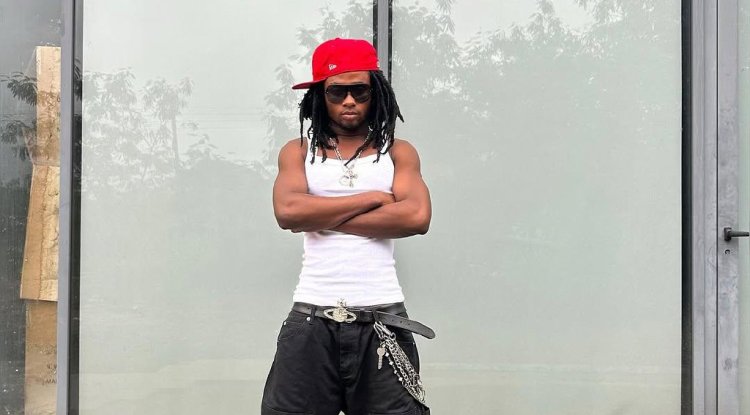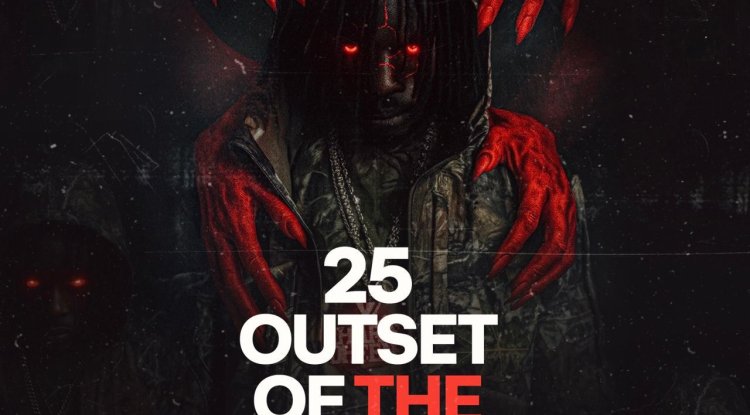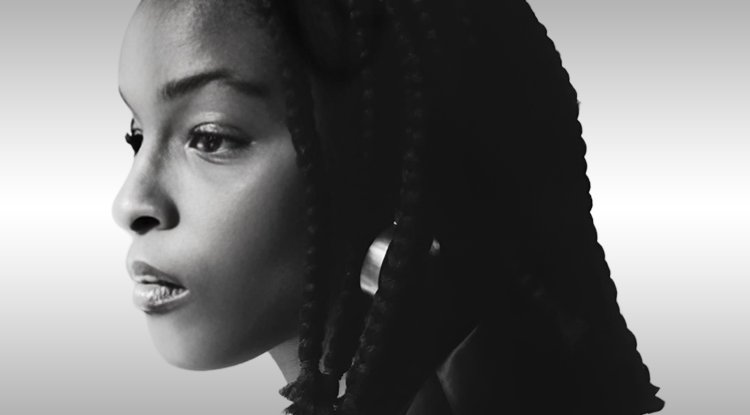Dave — The Boy Who Played the Harp: A Track-by-Track Review
South London rapper of Nigerian origin, Dave (Santan), dropped his highly anticipated third studio album, The Boy Who Played the Harp, on the 24th of October 2025. After a four-year hiatus, fans were beginning to grow impatient, waiting for Dave to release a new project. I can confidently say this album was worth every single minute of the wait. Dave’s The Boy Who Played the Harp is an intimate meditation on introspection, purpose, and moral accountability. The title itself carries […] The post Dave — The Boy Who Played the Harp: A Track-by-Track Review appeared first on HypeTribe.
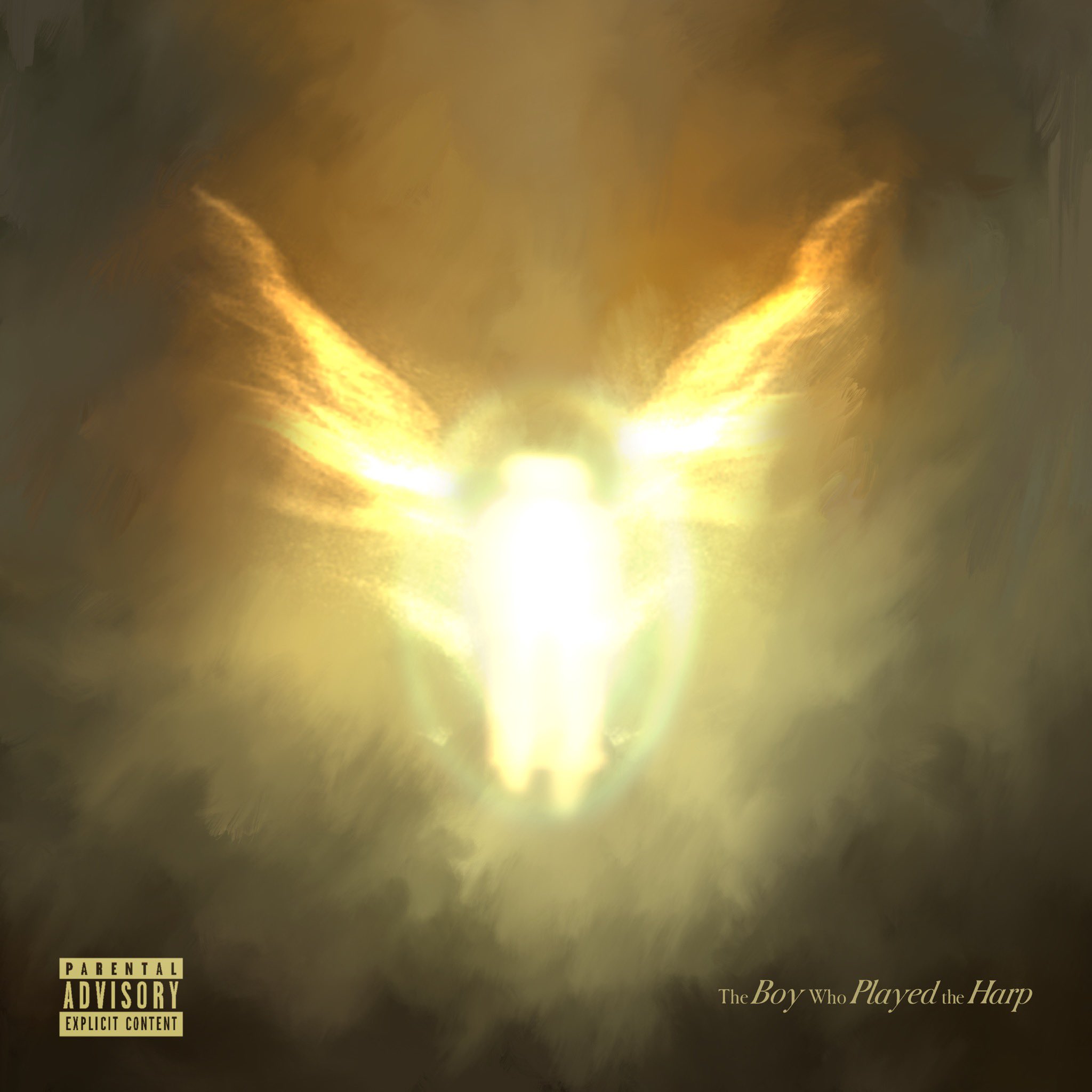
South London rapper of Nigerian descent, Dave (Santan), unveiled his highly awaited third studio album, The Boy Who Played the Harp, on 24 October 2025. After a four‑year break, listeners had begun to grow restless, eager for a fresh project from Dave. I can confidently affirm that this release justified every moment of anticipation.
Dave’s The Boy Who Played the Harp serves as a personal reflection on introspection, purpose, and moral responsibility. The title itself is loaded with symbolism. The “boy” alludes to the biblical David, the shepherd who soothed King Saul with his harp before becoming king. By invoking this image, Dave presents himself as an artist who uses his talent not merely for entertainment, but for healing, contemplation, and truth. Throughout the record, he delves deeply into his life, faith, and his place in a world that continually tests his convictions.
At its heart, The Boy Who Played the Harp is Dave calling himself to a personal reckoning. He strips away ego, confronts guilt, wrestles with faith, and ultimately emerges with something raw and redemptive. The album does not chase mainstream virality; it pursues clarity—the kind that only arrives when you look inward long enough to grasp your purpose.
Below is a full‑length review of Dave’s third studio album The Boy Who Played the Harp.
1. History (feat. James Blake)
The record opens with a boastful track. A deep, resonant piano progression sets a cinematic tone as Dave glides over it with confidence and composure. He aligns himself with biblical David, suggesting that his past triumphs were merely preparation for a greater calling. James Blake’s graceful voice adds a delicate melodic layer, giving the song an ethereal balance between pride and humility. As an introduction, History perfectly establishes the album’s thematic direction.
2. 175 Months
Here, Dave initiates self‑questioning over an impetuous beat and airy female vocals. He dissects the weight of fame, the isolation of success, and the cost of ambition. It is a moment of raw self‑examination, where Dave seeks accountability and wonders whether he is evolving quickly enough to meet his own expectations.
3. No Weapons (feat. Jim Legxacy)
Drawing inspiration from Isaiah 54:17—“No weapon formed against me shall prosper”—this track is a beautiful blend of melody and message. Dave employs his protégé, Jim Legxacy, who delivers an infectious hook that breathes hope into the song, while Dave raps about faith, protection, and divine assurance, staying consistent with the biblical undertone that threads throughout the album. The chemistry between the two artists shines effortlessly, creating one of the most spiritually uplifting songs on the project.
4. Chapter 16 (feat. Kano)
This track stands as the album’s most pivotal moment. In 1 Samuel 16, the prophet Samuel anoints David as king; the moment destiny finds him. It’s no wonder Dave mirrors that story here by inviting Kano, one of the UK’s foundational voices, into a symbolic conversation. The two sit across a metaphorical dinner table, discussing fame, legacy, and the meaning of longevity. Kano offers wisdom, advising Dave—whom he calls THE RAP MESSIAH—on how to navigate attention without losing authenticity. The song concludes with a figurative passing of the torch, as Kano names Dave and Little Simz the future of rap.
5. Raindance (feat. Tems)
This is the collaboration fans have long awaited. Tems’ soulful, honeyed vocals blend with Dave’s charismatic flow to create something magnetic. The track oscillates between Afro‑soul and introspective R&B, capturing the highs and lows of love, temptation, and emotional connection. Their chemistry feels organic; Tems soars while Dave grounds the song with rhythmic confidence. Raindance offers a firsthand experience of peak musical mastery and cohesion. It is sensual, spiritual, and sonically rich, providing a warm moment in the album’s meditative arc.
6. Selfish (feat. James Blake)
This is one of the most vulnerable moments on the album. Introduced by a gentle piano progression, Dave reflects on trauma, anxiety, and the emotional toll of his journey. James Blake’s vocals drift around the verses like a conscience whispering hard truths. The song feels like a confessional booth. Dave ponders many unanswered questions, opens up about his wavering mental health, insecurity, ego, and the weight of expectation. It’s haunting, stripped‑back, and deeply moving, standing as one of the purest emotional expressions on the record.
7. My 27th Birthday
Dave has built a tradition of signature, lengthy birthday‑themed tracks that act as time capsules for his state of mind. My 27th Birthday is the most mature and emotionally charged of them all. Over a haunting vocal and melancholic piano loop, Dave unloads his thoughts on politics, social decay, family, fame, and personal struggle. It is almost eight minutes long but never drags. Every verse feels essential. This track is the heart of the album and a self‑indictment that allows for thorough reflection. Here, Dave’s self‑awareness reaches its emotional apex.
8. Marvellous
Here, Dave becomes a storyteller once more. He narrates the life of Josiah, a 17‑year‑old trapped in the cycle of drugs, crime, and incarceration. The song’s placement after My 27th Birthday feels intentional; the outro of that track features Josiah’s voice saying, “Tell my story,” and Dave honors that request here. Rather than rap aggressively, he chooses to sing, showing both artistic maturity and vocal growth. It’s a sorrowful yet beautifully told story that underscores the importance of empathy and remembrance.
9. Fairchild (feat. Nicole Blakk)
On Fairchild, Dave shifts to powerful social commentary. The song dives into the harsh realities faced by women—sexual abuse, assault, femicide, and the emotional toll of gender‑based violence. Nicole Blakk delivers a gripping verse that gives voice to the silenced, while Dave reflects on male ignorance, complicity, and his own accountability. It’s a difficult listen, but an essential one. The song stands as both confession and call to action, urging men to do better and society to pay attention.
10. The Boy Who Played the Harp
The title track concludes the album with reflection and reaffirmation. Just as the biblical David played the harp to restore peace, Dave plays his metaphorical harp—his music—to remind himself of purpose and destiny. It is both declaration and prayer, a moment of self‑acceptance where he embraces the power and responsibility that come with his gift. The song’s tone is gentle yet resolute, bringing the project to a thoughtful and fulfilling close.
Ultimately, The Boy who Played the Harp is a deep, reflective and meditative examination of a highly successful artist who seems to be at war with himself, questioning his faith, belief, and expectations of his person and responsibility to his immediate circle and community at large.
It is lyrically acute, consciously and socially precise, and is definitely going to be talked about for years to come.
The post Dave — The Boy Who Played the Harp: A Track-by-Track Review appeared first on HypeTribe.
What's Your Reaction?










